
.avif)
Learn how leading health plans achieve HEDIS excellence by moving from an annual scramble to a proactive, year-round discipline built on data, teamwork, and continuous improvement.

.avif)
Explore how Reveleer’s AI-powered tools accelerate HEDIS abstraction and care gap closure, driving up to 75% efficiency gains and 95% accuracy to improve Star Ratings year-round.

.avif)
Learn how Reveleer's explainable AI moves beyond black box models to deliver measurable outcomes for patients, providers, and health plans through transparent clinical reasoning.

.avif)
Learn how Reveleer's provider engagement solutions bridge payer-provider gaps through intelligent automation, seamless workflows, and continuous collaboration.

.avif)
Learn why GenAI alone fails for risk adjustment and how Reveleer's hybrid approach combines evidence extraction with clinical reasoning to reduce noise by 50%.

.avif)
Discover why providers resist some VBC technology and how evidence-backed workflows can reduce administrative burden while improving outcomes.

.avif)
Discover how service models, coder proficiency, and data quality impact AI risk adjustment outcomes and learn to measure true ROI.

.avif)
Reveleer CEO Jay Ackerman details how AI is transforming value-based care by unifying fragmented clinical data, enabling true payer-provider collaboration, and automating complex workflows.
.svg)
.avif)
Discover how Reveleer's explainable AI delivers transparent clinical reasoning with 3,300+ expert formulas, reducing noise by 45% while ensuring regulatory compliance.

.avif)
Learn how AI helps health plans boost HCC accuracy, streamline workflows, and maximize revenue through smarter prospective risk adjustment.

.avif)
Discover how Reveleer's enrollment solutions automate TRR/TRC processing and dual-eligibility management for stress-free AEP 2027 preparation.

.avif)
Learn how Reveleer's IVA season delivered 25% faster launches and 73% validation rates through intelligent automation and proven partnership.

.avif)
A large health plan sought a more efficient chart abstraction process, as manual methods strained staff and missed clinical evidence, leading to lower quality scores.

.avif)
Explore how a nationally recognized health network reduced labor costs by employing Reveleer’s AI technology to power value-based care analytics, workflows, and documentation.

.avif)
See how Reveleer Care Gap Manager delivered a 14 percent revenue increase and an impressive RAF score improvement while elevating provider satisfaction and scaling engagement.

.avif)
Learn how a regional health plan serving Medicare and Medicaid lines of business centralized enrollment to improve data integrity, enhance efficiency, and recover revenue.

.avif)
Discover how a large not-for-profit health system experienced a 6X return on investment by transforming chart reviews into proactive patient targeting.

.avif)
Learn how a large regional health plan saved more than a thousand hours of manual document preparation using Reveleer’s AI-powered retrieval solution.

.avif)
Discover how a large regional health plan coded a year’s worth of medical records in four months with Reveleer.

.avif)
Learn how a rapidly growing ACO improved patient insights and expanded population health management with Reveleer.

.avif)
Learn how a leading health services firm automated provider outreach and accelerated medical record retrieval.

.avif)
Rise National
Connect with industry leaders at RISE National and explore innovative AI-driven strategies shaping the future of Medicare Advantage and value-based care.
.avif)
.avif)
Driving outcomes, not abrasion: Omnichannel provider enablement strategies
Discover how frictionless, omnichannel strategies and automated tools for care gaps and incentives lead to stronger payer-provider partnerships and exceptional outcomes.
.avif)
.avif)
Driving outcomes, not abrasion: Omnichannel provider enablement strategies
Join us as we explore the art and science of provider group engagement that strengthens payer-provider partnerships.
.avif)
.avif)
The tipping point: Technology’s role in value-based care
Watch the session, ‘The tipping point: Technology’s role in value-based care’, to learn strategies for better outcomes and stronger operations.

.avif)
The new era of RADV: What plans must do now
This session offers practical tips and insights to help you adapt to CMS policy changes and build year-round audit readiness.

.avif)
Accelerating risk adjustment efficiency with AI: An executive roadmap
Watch this two-part webinar series, to learn AI strategies that boost data accuracy, streamline workflows, and achieve RADV audit-readiness.
.avif)
.avif)
Breaking down ACO data silos with AI-driven prospective risk
Learn how AI and clinical collaboration improve risk adjustment, coding accuracy, and outcomes in value-based care.
.avif)
.avif)
Transforming the risk continuum with AI and clinical collaboration
Learn how AI and clinical collaboration improve risk adjustment, coding accuracy, and outcomes in value-based care.
.avif)
.avif)
From data to decisions: Using clinical intelligence to improve care quality
Learn how to use diverse clinical data for better care decisions, avoiding missed diagnoses & improving outcomes with actionable insights.
.avif)
.avif)
Ethical AI in value-based care: Balancing innovation with trust and transparency
Watch the session, ‘Ethical AI in Value-Based Care’, to learn about Reveleer’s AI trust and transparency.
.avif)
.avif)
MAPD revenue reconciliation and data integrity: A proven playbook for success
Learn how to achieve accurate revenue data, avoid costly errors, and thrive in an increasingly data-driven environment.
.avif)
.avif)
HHS-RADV IVA partner selection simplified: making the right choice
Learn how to select the right partner for your HHS-RADV Initial Validation Audit (IVA). View our webinar for expert insight and strategies.
.avif)
.avif)
Navigating the CMS final announcement & OIG RADV final rule
Navigating CMS Final Announcement & OIG RADV Final Rule: Strategies for Success webinar registration
.avif)
.avif)
Mastering year-round quality measurement to minimize stress and maximize results
Learn how to master year-round quality measurement to boost Star Ratings and reduce HEDIS season stress. Join our webinar for expert insights and strategies.
.avif)
.avif)
Navigating the HHS-RADV IVA final audit submission process
Watch the on-demand webinar on HHS-RADV IVA Final Audit to explore key insights and best practices for audit preparation and compliance.
.avif)
.avif)
Why it's time to invest in member enrollment operations
Discover why investing in enrollment operations is crucial for value-based care organizations. Learn how technology can streamline the processes.
.avif)
.avif)
Uniting risk and quality to improve outcomes in value-based care
Value-based care organizations are uniting Risk and Quality programs to ensure comprehensive data is shared across the member lifecycle.
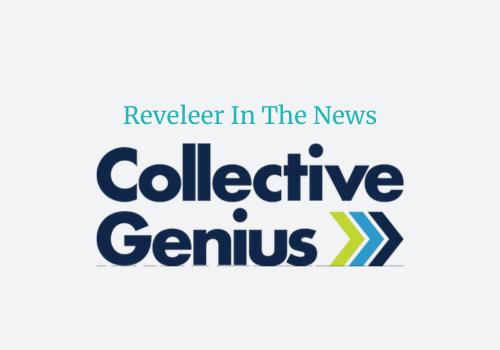
.avif)
Jay Ackerman, a growth oriented leader, shares his expertise on seizing market opportunities and building great teams aligned with a clear vision.

.avif)
AI enables value-based care by unifying data, strengthening risk and quality performance, and driving more confident, scalable decisions.

.avif)
AI can help providers improve value-based care by transforming risk adjustment, synthesizing quality and risk data, and boosting patient engagement.
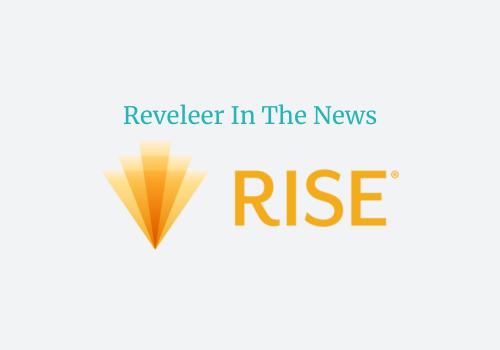
.avif)
The shift from V24 to V28 signals a strategic move toward accurate, AI-driven data and stronger risk capture.

.avif)
Simplify the complexities of value-based care by turning vast amounts of data into actionable insights and enable better patient care.

.avif)
Financial pressure will push payers to move beyond experimentation and deploy tactical AI tied to clear ROI, says David DeHommel.

.avif)
“Compete selectively, deploy AI tactically, and treat compliance as a year-round requirement,” says David DeHommel on 2026 challenges.

.avif)
Reveleer’s new RADV audit solution automates workflows, boosts coding accuracy, and drives audit readiness.

.avif)
AI-powered data management is the key to overcoming silos and complexity in value-based care, enabling better outcomes at lower costs.

.avif)
New report shows 97% of payers and providers share VBC goals, but silo'd data and low AI adoption hinder progress.

.avif)
Kevin Coloton explains how prospective risk models with AI/NLP enable proactive care while reducing provider burden in value-based care.
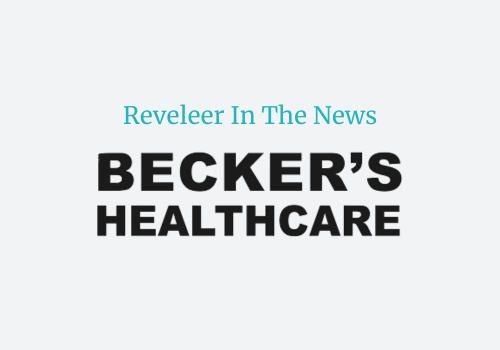
.avif)
AI-powered solutions are advancing value-based care with better data and predictive insights for payers and providers, featuring David DeHommel

.avif)
In response to CMS’s RFI, Reveleer supports open, standards-based APIs to enable seamless, real-time patient data access across healthcare.

.avif)
Jay Ackerman explains how retrospective and prospective risk adjustment work together to improve financial performance and patient care.
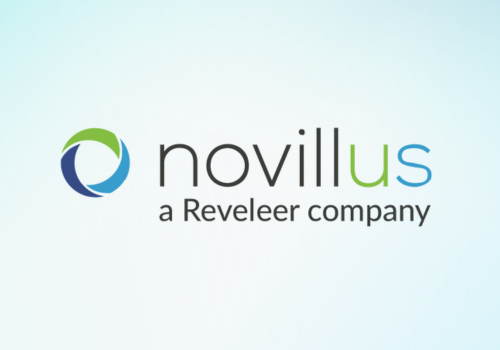
.avif)
Reveleer expands prospective quality improvement capabilities to empower smarter, faster healthcare decisions.

.avif)
“Trust is a big factor, so being given a suggestion that is 70% accurate isn’t good enough. The stakes are too high." says Dave Meyer, Chief AI Officer.

.avif)
The new office is part of Reveleer's plans to expand its operations and meet the growing demand for its AI-driven healthcare solutions.

.avif)
Delivering around the clock innovation to its customers, Reveleer enhances its scalability, operational efficiency, and service delivery.
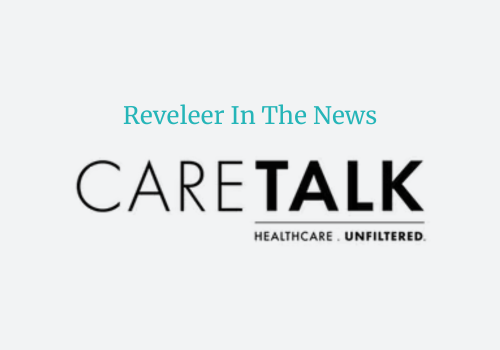
.avif)
Jay Ackerman discusses how AI can automate time-consuming tasks, streamline fragmented workflows, and consolidate critical risk adjustment to improve value-based care.

.avif)
New retrospective risk adjustment solution delivers real-time insights, enhanced coding, and intelligent workflows.

.avif)
Leading value-based care platform gains strong momentum and continued growth for healthcare solutions.

.avif)
Dave Meyer, Chief AI and Data Officer at Reveleer discusses the adoption of AI, ethical concerns, and 3 key principles for implementing AI.

.avif)
Healthcare Business News speaks with Jay Ackerman about how AI-driven healthcare data is shaping value-based care and improving patient outcomes.
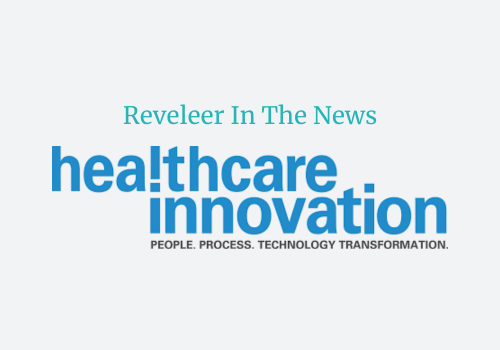
.avif)
Jay Ackerman talks about Reveleer's recent acquisition and the shift to working with provider-led ACOs as well as health plans.

.avif)
Paul Burke brings over 25 years of product and human-centered design experience to value-based care innovation.
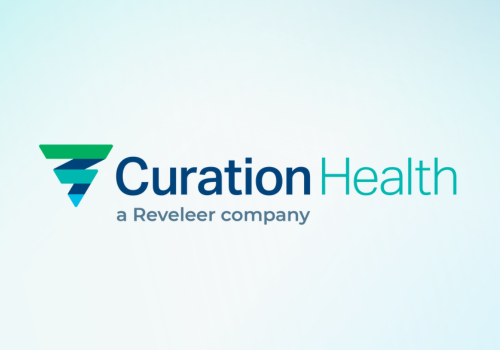
.avif)
Reveleer strengthens the ability to deliver connected, real-time clinical data across healthcare settings.

.avif)
Reveleer launches an AI-powered solution for automating risk adjustment data collection and clinical coding.

.avif)
Reveleer's AI-powered NLP first pass streamlines data abstraction, boosting quality measures for payers.

.avif)
Reveleer enhances clinical data insights and proactive care gap closure for improved outcomes and revenue.

.avif)
Reveleer strengthens leadership team with three new executives to drive growth and expand AI-enabled solutions in value-based care.

.avif)
Reveleer secures $65M to fuel strategic acquisitions, expand AI-driven solutions, and accelerate growth in value-based care.

.avif)
Reveleer acquires MDPortals, enhancing clinical intelligence and patient insights at the point of care.

.avif)
Reveleer enables health plans to reconcile CMS payment adjustments in real time for improved transparency.

.avif)
Reveleer extends AI-powered solutions to risk-bearing providers, enabling proactive risk adjustment and quality improvement at the point of care.

.avif)
Reveleer's Inc. 5000 recognition highlights its rapid growth and innovation in value-based care technology.

.avif)
Reveleer is certified as a Great Place To Work®, highlighting its strong workplace culture and commitment to its employees.

.avif)
Digital health expert Megan Callahan joins Reveleer's Board, bolstering their value-based care platform innovation.

.avif)
Alan Tam joins the Reveleer leadership team as Chief Marketing Officer to accelerate growth and enhance customer engagement.

.avif)
Discover insights to transform regulatory requirements into opportunities for security and improvement.

.avif)
Explore proven best practices, critical measure changes, and technology-enabled solutions that power continuous quality improvement.

.avif)
Learn how AI can streamline and enhance your risk adjustment process, providing actionable insights and driving efficiency.

.avif)
With new CMS rules and shifting risk models, even small mistakes can result in millions lost or expose your plan to costly penalties.

.avif)
Explore our interactive guide to help you evaluate and select the ideal RADV vendor for your organization.

.avif)
With new CMS rules and shifting risk models, even small mistakes can result in millions lost or expose your plan to costly penalties.

.avif)
Discover how to tackle quality performance barriers and drive superior health plan performance.

.avif)
By utilizing AI and data-driven strategies, healthcare providers can manage risk adjustment, engage high-risk patients, and prioritize impactful interventions.

